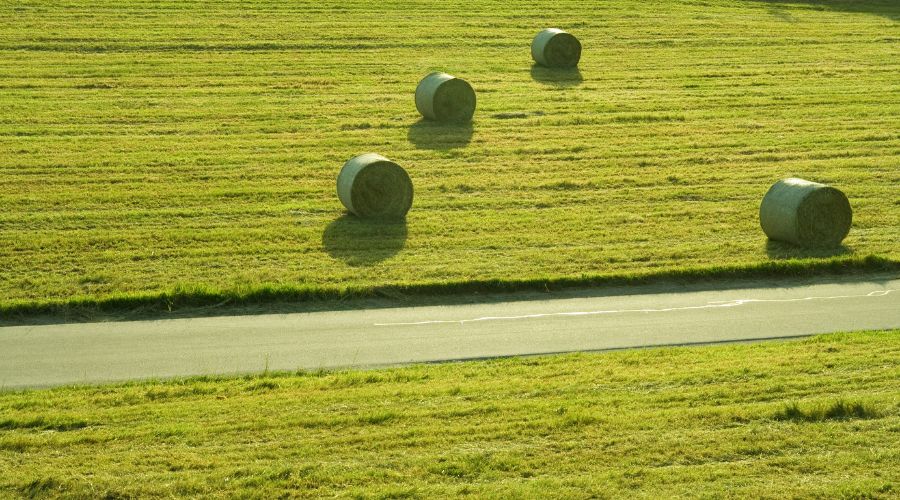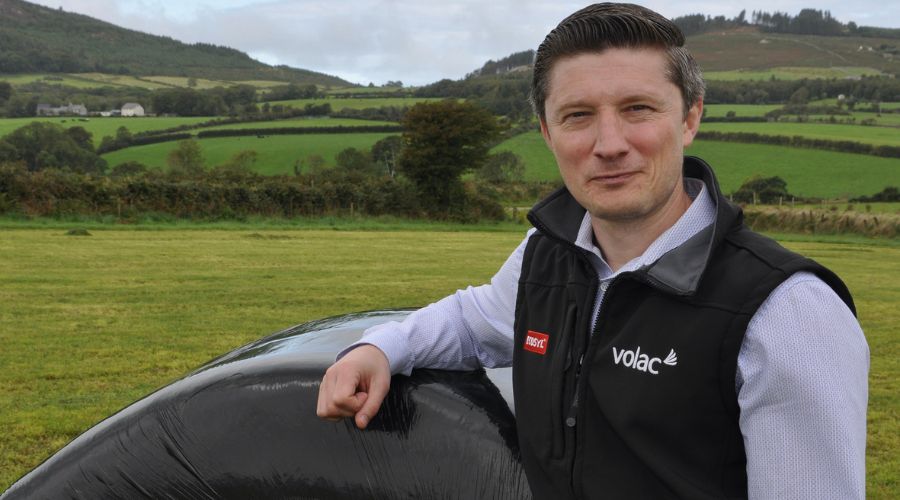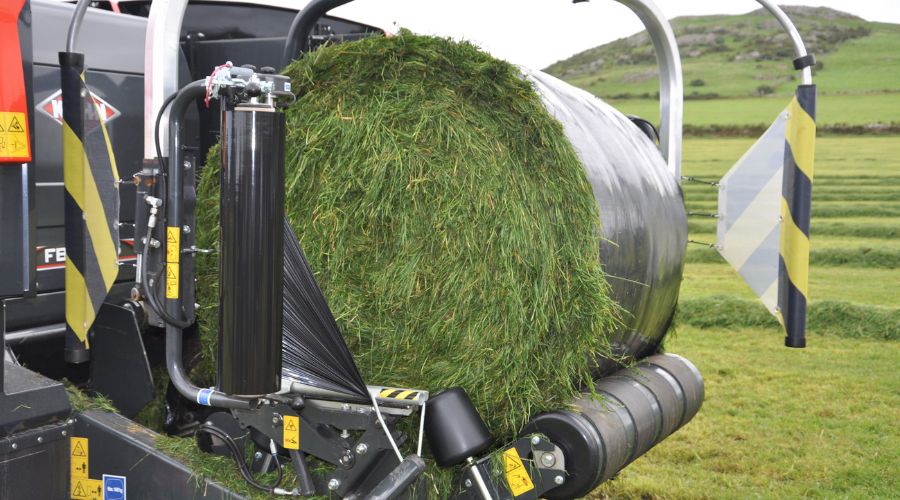Expert shares advice on how to make best quality bales
6th June 2024
Baled grass silage can be as good as clamped silage, but it is essential to employ equal attention to detail when making it, starting by cutting grass at the optimum time, said a Volac silage expert.

Dr Mark Leggett explained that it is best to cut grass at its nutritional peak, which is before heading, rather than cutting when it is older and lignified. Also, wilt to the optimum dry matter (DM) content.
He added: “Typically, 35-45% DM is considered optimum for baled grass silage. This might be appropriate for beef and sheep. But dairy farmers shouldn’t be afraid to aim for the lower end of this DM range.
“This not only reduces wilting times, to reduce in-field nutrient losses, but a lower % DM also improves the fermentation and reduces the risk of heating and spoilage.
“Bales have a large surface area, so sealing rapidly against air is also vital with all % DMs to reduce heating and spoilage.”
Beneficial bacteria
Dr Leggett said that it is also important to choose the correct type of additive to reduce losses in bale quality and DM.
“Tailor the additive used to the bale % DM and to how long the opened bale will be exposed to air for at feedout.
“For lower % DM bales which will be eaten within a day, for example, 35% DM or below on dairy units, where there is little risk of aerobic spoilage (heating), consider using Ecosyl 100 to preserve the bale by improving the initial fermentation.”
READ MORE: Guide to baling safety

The expert added that if bales will be open for two or three days before being consumed, for example on beef and sheep units, farmers should focus not only on the initial fermentation but also on tackling spoilage and heating.
“In these cases consider Ecocool. This contains two beneficial bacteria, one for fermentation and one to target the yeasts and moulds that cause heating and spoilage.
“Alternatively, consider Double Action Ecobale, which includes two bacteria, one of which is effective at fermenting drier material, plus a feed-approved preservative.
“It’s also important to store and stack bales correctly to avoid splitting. At lower % DMs don’t stack them too high. Above 35% DM, they can potentially be stacked three or four high,” the expert concluded.
Read more forage and silage news.




